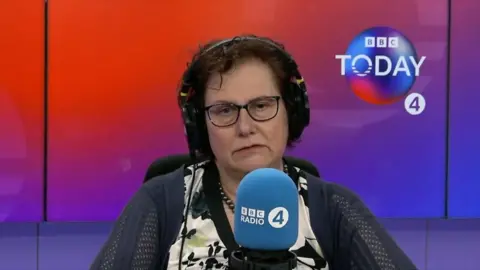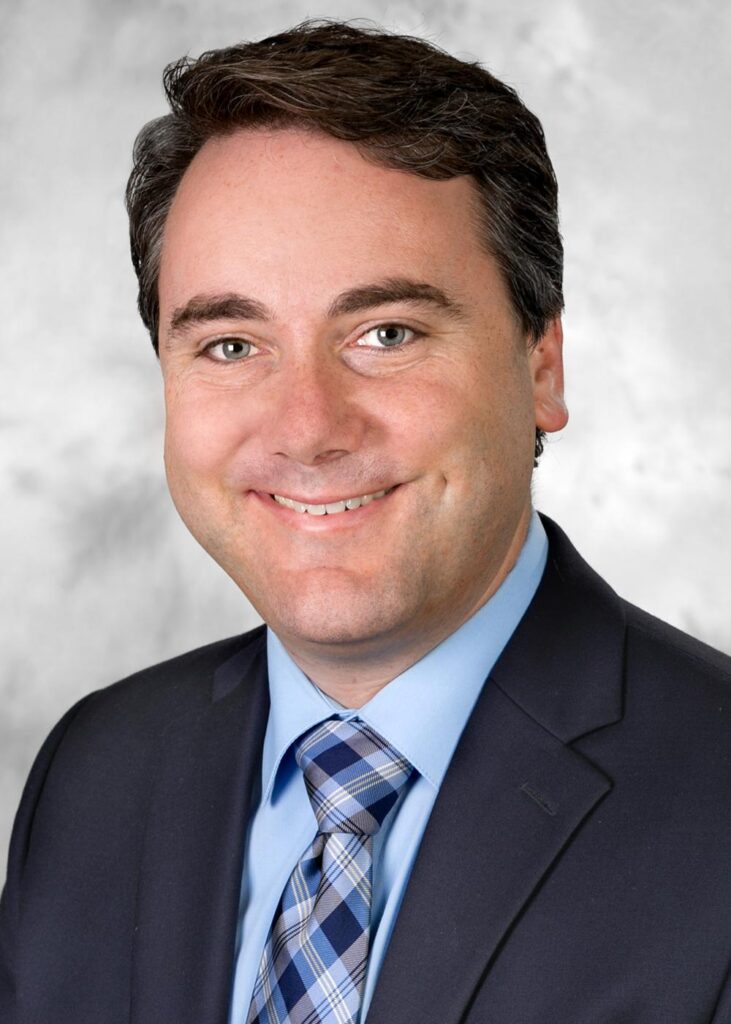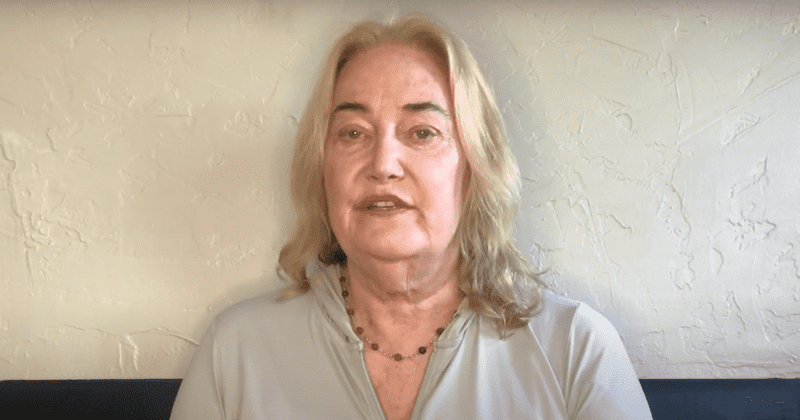Major U.K. Report Finds Pediatric Gender Medicine Is Based on ‘Remarkably Weak Evidence’
Four years in the making, the report has firmly established new, cautious policies on treating youth gender distress in England that are an ocean apart from the liberal treatment practices prevalent in blue U.S. states.

A new era in the care of children and adolescents with gender-related distress has begun in England, where a government-appointed team has published a mammoth report critiquing this controversial and politicized branch of pediatrics.
Commissioned by England’s National Health Service in 2020 and published in its final form on Tuesday evening, the nearly 400-page independent report positions the NHS as the global standard-bearer of a cautious and circumspect new method of caring for youth who are troubled about their gender.
The report characterizes pediatric gender-transition treatment as based on “remarkably weak evidence.” This involves prescribing minors puberty blockers and cross-sex hormones — a medical practice that England’s recently-shuttered pediatric gender clinic enthusiastically observed and that all major U.S. medical societies support.
England joins an expanding crop of Western European and Scandinavian nations whose health authorities have each performed an about-face on this hot-button issue during the 2020s. These nations now prioritize psychological care for gender-distressed youths, a population that suffers from markedly high rates of other psychiatric disorders, suicidality and autism.

Unlike many Republican-dominated U.S. states, these countries do not outright ban gender transition treatment for minors. But they do sharply restrict access. The NHS announced last month that English children could only newly obtain puberty blockers through a planned clinical trial, but that youths could begin receiving cross-sex hormones around age 16.
While the report is quintessentially British in its measured tone, it nevertheless offers a scathing critique of the efforts by the nation’s pediatric gender clinic to care for the fast-expanding population of adolescents, in particular biological girls, who are burdened by severe distress about their gender. It portrays prescribing practices as having strayed egregiously off-course from their relatively cautious origins, and from the evidence base.
Among the clinic’s many former staffers to have blown the whistle against it, claiming it provided shoddy care and often cursory screening before prescribing gender-transition treatment, is psychiatric nurse Susan Evans. She expressed vindication over the findings of the new report, which, she said, “recommends a holistic cautious psychological approach offering support and therapy rather than the more superficial affirmation approach and hormones as the first-line treatment.”
Laura Edwards-Leeper is an Oregon psychologist who helped first import the pediatric gender-transition treatment model to the United States from its roots in the Netherlands in 2007.More recently she has become a leading voice advocating caution from within the American field.

“If this isn’t the final reckoning for U.S. pediatric gender medicine, I’m not sure what will be,” Dr. Edwards-Leeper said of the English report’s long-awaited publication. “Now is the time for the field to catch up with much of the rest of the Western world and take an honest look at our current clinical practices for gender distressed young people.”
Evidence-based medicine is the captain now
Dr. Hilary Cass, a prominent British pediatrician whom the NHS appointed to lead the new report, known as the Cass Review, addressed gender-distressed youths directly in the document. She acknowledged they “may be disappointed” by her recommendations for a non-medicalized approach to their care, but said that the “research has let us all down, most importantly you.”
Dr. Cass has effectively claimed a need to right England’s pediatric-gender-care ship, by eschewing “a social justice model” and adhering to the NHS’s standard principles of evidence-based medicine.
“Healthcare for transgender and gender questioning people needs to be improved across the board,” Dr. Cass said in a statement. Gender-distressed children, she added, “should be afforded the same quality of care offered to other children and young people experiencing distress.”

Her report was published simultaneously with a raft of peer-reviewed analyses of the evidence base and global treatment guidelines regarding pediatric gender care. Dr. Cass commissioned these systematic literature reviews — the gold standard of scientific evidence — from researchers at the University of York.
The authors of the review of 50 studies of puberty blockers reported they could come to no conclusions about how these drugs impact children’s gender distress, or dysphoria. Nor could the authors determine how the drugs impacted “mental and physical health or cognitive development.” Bone health and height “may be compromised” during treatment, they determined.
For the review of cross-sex hormone prescriptions for adolescents, investigators reviewed 53 studies and reported: “Moderate-quality evidence suggests mental health may be improved during treatment, but robust study is still required. For other outcomes, no conclusions can be drawn.”
The evidence-based-medicine principles on which these reviews are based remain controversial when applied to pediatric gender medicine. Supporters of adolescent access to gender-transition treatment argue that such principles set a bar so high that no study in this field can hope to reach them. To be considered “high quality,” evidence must come from randomized controlled trials, or RCTs. But these advocates argue that such research would be unethical, given, they assert, that a preponderance of evidence supports gender-transition treatment’s benefits.
Paul Carruthers is a nurse consultant with Gender Plus, a private English private clinic offering cross-sex hormones to those age 16 and older. He pointed to the multiple systematic literature reviews regarding pediatric gender-transition treatment that previously have been published and that to his dismay found the evidence inconclusive and no better than low quality. “What they’ve missed out is qualitative studies,” he said.
“Even if we assumed RCTs were impossible, it still wouldn’t justify proceeding as if RCTs had been done and had shown unmitigated success,” said James Cantor, a Toronto psychologist and sex researcher. “When RCTs cannot be done, we are compelled to proceed more cautiously, not less.”
The Cass report is not, however, merely grounded in the new review papers. It is also based on, for example, the team’s years of interviews, meetings and focus groups with service providers, families and young people with gender distress, as well as people who have detransitioned (meaning they reverted to identifying and presenting as their biological sex).
“We are pleased the voices and experiences of trans young people appear to have been heard and respected,” the British trans advocacy group Mermaids said in a statement.
The Cass report’s findings, implications and recommendations
The Cass report is a veritable bible of findings and recommendations that are meant to transform gender care in England and are expected to influence the direction of the field worldwide.
Addressing the question of what has driven the past decade’s worldwide surge in trans identification and gender distress in adolescents, the report finds no simple explanation. However, it states that “there is broad agreement that gender incongruence is a result of a complex interplay between biological, psychological and social factors.”
Trans advocates often claim that pediatric gender-transition treatment is “life saving.” But Dr. Cass’ team could find no evidence that cross-sex hormone treatment in particular reduces the elevated rate of suicide deaths among gender-distressed youths.
The report gives credence to the most fraught conundrum facing physicians prescribing medications to children that either might, in the case of puberty blockers, or will, in the case of hormones, have permanent impacts. Such clinicians, the report states, “are unable to determine with any certainty which children and young people will go on to have an enduring trans identity.”
The rate at which those treated with hormones ultimately detransition, the report asserts, “remains unknown due to the lack of long-term follow-up studies, although there is suggestion that numbers are increasing.”
Supporters of children’s access to puberty blockers have long asserted that they provide gender-distressed young people with “time to think” about whether they are truly trans and want to begin taking hormones. But nearly all the English children put on these drugs ultimately started hormones, raising doubts that the screening process could have identified who should receive blockers with such near-perfect precision. Consequently, Dr. Cass states that “there is no evidence that puberty blockers buy time to think.” On the contrary, the report suggested that these drugs may in effect lock in a trans identity that otherwise might have dissipated without the drugs.
The report advises care providers to observe “extreme caution” in prescribing cross-sex hormones to those ages 16 and 17. In a letter released Wednesday acknowledging the report’s publication, the NHS said it would review its policy on permitting this age bracket to access hormones. In the meantime, it has established a “national multidisciplinary team” to review all physician recommendations for hormone prescriptions for such teenagers.
What’s more, the report suggests that many of the factors that have complicated the care of gender-distressed minors likely hold true for young adults as well, and that further investigation of the treatment model for that group is also warranted.
Dr. Cass goes so far as to advise that families considering what’s known as the social transitioning of gender-incongruent children — changing a child’s name, pronouns and clothing — should observe a “cautious approach,” because doing so “may change the trajectory of gender identity development.”
The report differs sharply with the claim by the American Academy of Pediatrics that “children know their gender” and that care providers should let children identifying as transgender direct their own path. Instead, Dr. Cass states, “Young people’s sense of identity is not always fixed and may evolve over time.” The report suggests that children’s urgency to transition is not always in their own best long-term interest.

Neither the AAP nor the author of its policy statement supporting the so-called “affirmative” model of care for children identifying as trans, Brown University child psychiatrist and pediatrician Dr. Jason Rafferty, returned a request for comment.

Michael Bailey, a psychologist and sex researcher at Northwestern University, said he expected that the American gender care field would turn a blind eye to the report.
“U.S. practitioners are on a sinking ship of medical transition, evidence be damned,” Bailey said.
A scathing critique of U.S.-based medical societies
Between them, the new review papers and the Cass report serve as a stinging rebuke to the World Professional Association for Transgender Health, or WPATH. A largely U.S.-based organization that blends medicine and activism, WPATH has positioned itself as the global authority on the care and treatment of trans people. The organization is an avid defender of pediatric access to puberty blockers and cross-sex hormones and of the evidence supporting such treatment.
But the Cass Review found that WPATH’s guidelines for minors “lack developmental rigor” and that the document “overstates the strength of the evidence.”
Dr. Stephen Levine, a clinical professor of psychiatry at Case Western Reserve University in Ohio, said that England’s report puts the nation “years ahead of American social-justice arguments, belief in WPATH’s hegemony, and blindness to possibility of harms” stemming from the affirmative care model.
The University of York’s systematic review of 23 international guidelines of pediatric gender care found that most did not follow what Dr. Cass characterized as “international standards for guideline development.” Consequently, Dr. Cass was only willing to recommend guidelines issued by health authorities in Finland and Sweden — two of the nations that recently have sharply restricted pediatric gender-transition treatment access.
The Cass report expresses concern that many treatment guidelines are duplicitous with respect to the reliability of the evidence base. Most of these documents, the review states, acknowledge the “insufficient evidence about the risks and benefits” of gender-transition treatment in adolescents, “particularly in relation to long-term outcomes.” Nevertheless, the report states, “many then went on to cite this same evidence to recommend medical treatments.”
The report faults WPATH and the U.S. Endocrine Society in particular for what it characterizes as “circularity” in their citations—citing and drawing influence from one another’s guidelines, which in turn have “influenced nearly all the other guidelines.” (This practice is sometimes referred to as citation laundering.) WPATH, the Cass Review states, “cited many of the other national and regional guidelines to support some of its recommendations,” despite the fact that these guidelines were “considerably influenced” by WPATH’s own previous guidelines.
“What the Cass Review highlights is the broken chain of trust in gender medicine,” said Leor Sapir, who studies pediatric gender medicine as a fellow at the Manhattan Institute. “When you examine the studies on whose basis this supposed consensus has emerged, you realize they are exceptionally weak and at times border on fraud.”
Neither WPATH nor the Endocrine Society responded to a request for comment.
What will become of England’s pediatric gender care system?
Dr. Cass released an interim report in 2022 that prompted the NHS to order the closing of England’s pediatric gender clinic, to be replaced by a wide network of small local clinics that could handle what has become a crushing demand for services. According to the NHS, nearly 6,000 youth were on the waiting list for gender care services at the end of last year.
The new youth gender clinics, the new report states, “should include psychiatrists, pediatricians, psychologists, psychotherapists, clinical nurse specialists, social workers, specialists in autism,” as well as speech-and-language pathologists and occupational-health specialists.
This system was meant to launch on April 1, but sources suggested it remains a mere shell of a service, and Dr. Cass projects it will take “several years” to get the new system up and running.
Aidan Kelly, a consultant clinical psychologist and director at Gender Plus, expressed concern that the Cass report’s findings “are unlikely to translate into the delivery of timely care to those who need it most, any time soon. Those who will be working in the service have little or no prior experience of working with transgender and non-binary young people, and the waiting lists, which are already past the four-year mark, will continue to grow.”
Dr. Cass, in her report, expressed dismay that officials at NHS adult gender clinics refused to share with her team data pertaining to the approximately 9,000 children previously to have received services at the pediatric gender clinic since it imported the Dutch model of care in 2011. This apparent stonewalling has thwarted the Cass Review’s efforts to assess long-term outcomes among these children and to use those findings to inform future improvements to youth-gender-care practices.
“What are they hiding?” said Michael Biggs, an Oxford University sociologist. His investigative scholarship helped bring to light the failure of the clinic to recapitulate the promising findings regarding pediatric gender-transition treatment reached by original Dutch researchers — a fact that the English clinic’s staffers long kept secret. Mr. Biggs said that the staffers “obstructed Hilary Cass’ investigation at every step.”
Given the Cass Review is meant to help establish an NHS-sponsored clinical trial of puberty blockers, the final report leaves open the possibility that some youths “may benefit from medical intervention,” while “some may not.” But this trial first needs to pass muster with an ethics review board and is not expected to launch until early 2025 at the soonest. Dr. Cass suggests that the trial might exclude those who only began exhibiting gender-related distress in adolescence, given her recommendation that “long-standing gender incongruence should be an essential prerequisite for medical treatment.”
The NHS’s newly restrictive policy on puberty blockers does leave open the door for families to access puberty blockers through private clinics. However, no private clinics have been sanctioned by the UK Care Quality Commission to provide such medications. Some families have accessed these drugs from overseas, which Dr. Cass has made clear she frowns upon.
Her report also does not mince words in observing that the “toxicity of the debate is exceptional” regarding the care and treatment of gender-distressed children.

Dr. Erica Anderson, a psychologist and the former head of WPATH’s U.S. branch, expressed hope that the Cass report would improve the climate in this field. “The doctrinaire bullying of some activists, falsely claiming that the ‘science is settled,’ should now be shown to be a false promise and the ideologically driven mantra that it truly is,” she said.
In the words of the report: “There are few other areas of healthcare where professionals are so afraid to openly discuss their views, where people are vilified on social media and where name-calling echoes the worst bullying behavior.”
“This must stop.”

